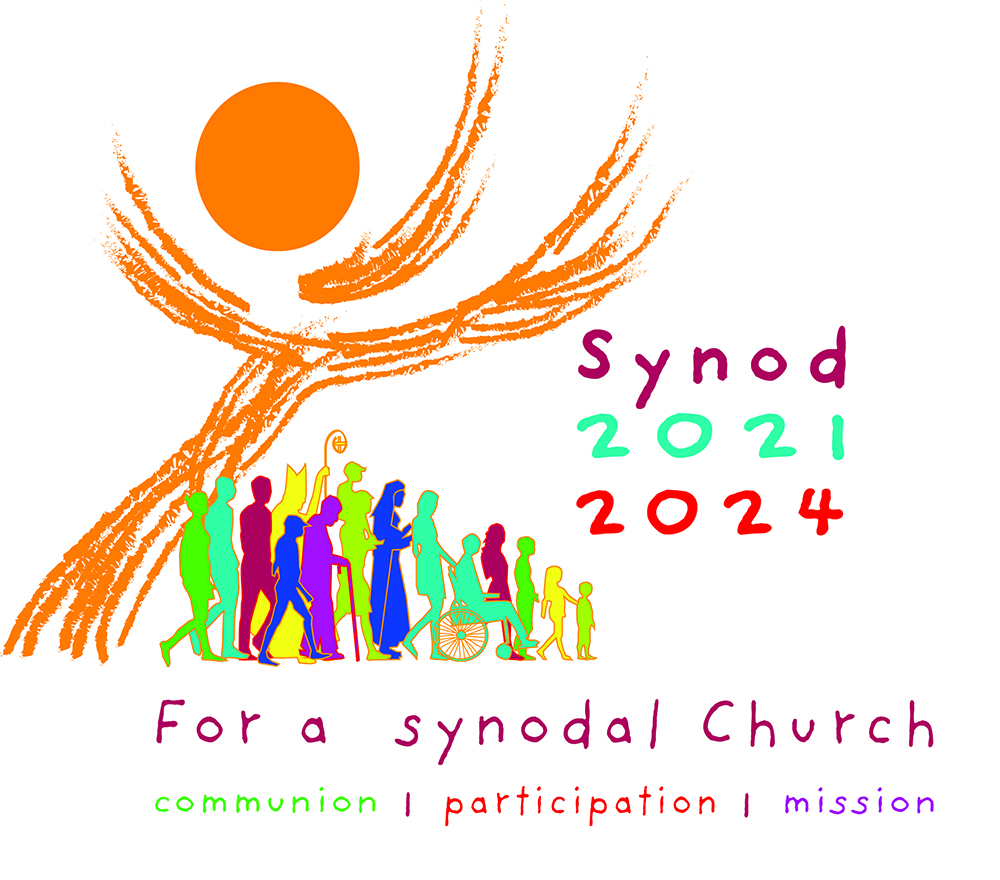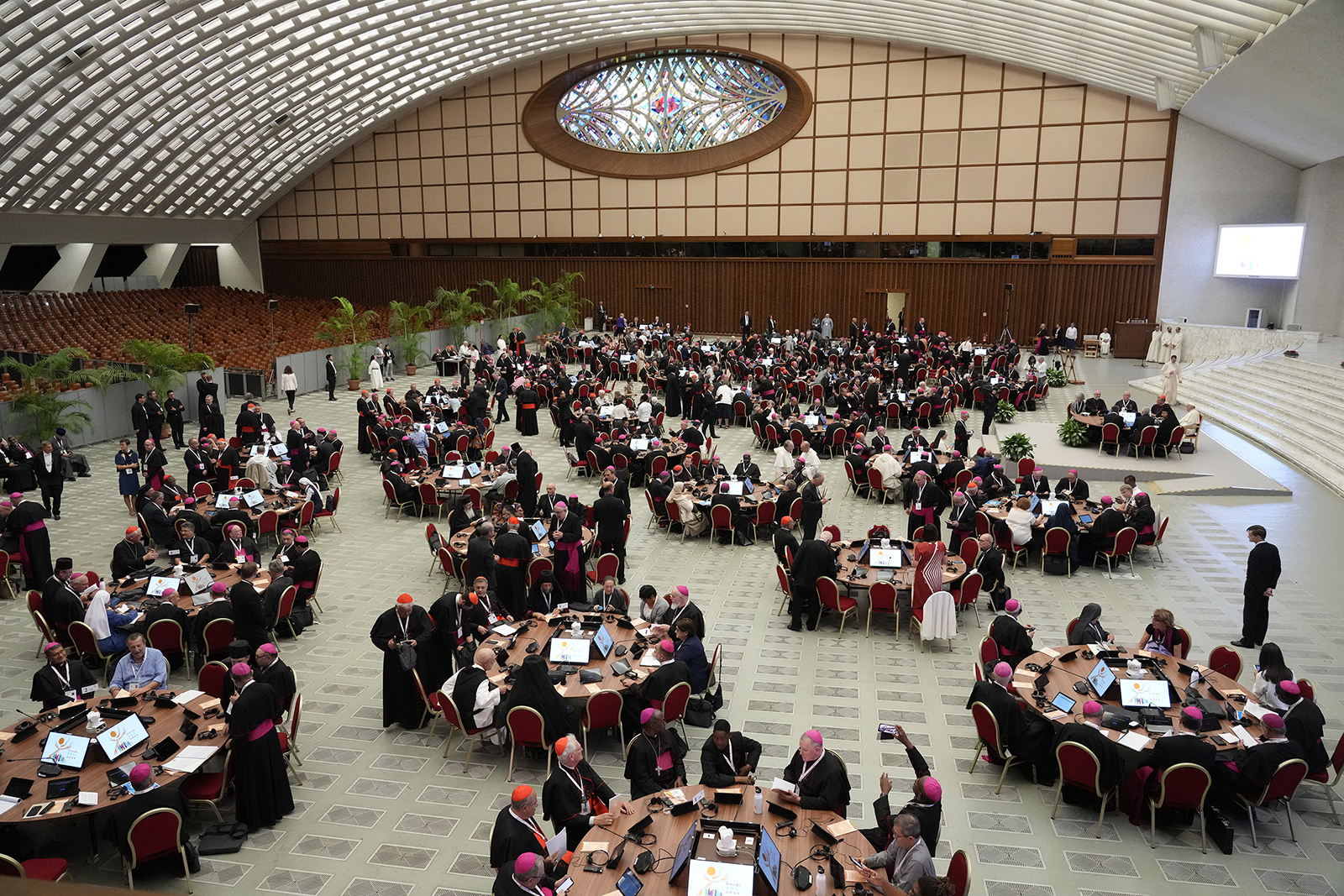
VATICAN CITY (RNS) — A study by an international association of Catholic women’s organizations has found that a strong majority of women who attended last fall’s meeting of the Synod on Synodality in Rome felt their concerns were heard at the gathering, but they also believe they are already being sidelined as the next meeting of the synod approaches.
The study, which surveyed more than 459 women involved at different levels of the synod, found that 43% felt their voices were “usually listened to,” and another 24% said they felt they were always heard. A total of 69% of women said that they were “effectively involved in the decision-making process” during the synod.
The survey was conducted by the World Women’s Observatory, a project of the World Union of Catholic Women’s Organizations, which aims to elevate women’s status in society and in the church. The results of the study were sent to the Vatican for analysis and presented at a press conference on May 30.
The Synod on Synodality, called in 2021 by Pope Francis, invited Catholics around the world to gather in parishes and dioceses to talk openly about the issues facing the church. Bishops later discussed the results of those consultations at the national and continental level, setting the agenda for the synod meeting in Rome last October. Among the most commonly cited concerns were female leadership and LGBTQ+ inclusion.
The synod also saw unprecedented inclusion of women, who were allowed to attend the summit in Rome in October 2023. Such synod meetings are historically open only to bishops.
Despite the efforts to include women’s voices, however, 67% of women who participated in the WWO study said they “encountered obstacles during the process.”

Synod on Synodality logo. (Courtesy image)
The study found that “the Synod is marking a path of greater listening to women and the creation of new spaces within the Church where they are participating in decision-making,” but that many respondents underlined the importance that women be allowed to vote during the second meeting of the synod in October 2024.
“As the process progresses, fewer and fewer women are involved and in leadership positions in the Church, so their voice may be lost,” wrote one respondent from North America in the report.
Women were allowed to vote on the final report of the first synod session in 2023, “a decision that is still hard to swallow for some in the church,” said the Rev. Giacomo Costa, who works for the Vatican’s synod office that coordinated the process, at the press conference.
“I think it’s very limiting to reduce participation to being able to vote,” Costa said, adding that, while the ability to vote is highly prized in Western societies, “women have offered a contribution that is much more worthwhile than just simply pressing a button at the end of a process, which ultimately has a consulting function. In the end, the pope will decide.”
Costa said that women who acted as facilitators of the synod discussions were crucial in writing the report that came out of the first synod meeting, in which the discussions were summarized. He urged Catholics not to “become polarized, men against women.”
Another area of tension for many women, especially in Northern America and in Europe, is the question of allowing women to be ordained as deacons, clergy who may preach the gospel and perform some of the sacraments. Francis has created two commissions to study the possibility of women deacons and more recently appointed a team of theologians and canon lawyers to present their findings during the synod assembly in October but pushed off their written report to 2025.

FILE – Pope Francis, sitting at right, participates in the opening session of the 16th General Assembly of the Synod of Bishops in the Paul VI Hall at the Vatican, Wednesday, Oct. 4, 2023. (AP Photo/Gregorio Borgia)
“Women, particularly in North America and Europe, are demanding that they be allowed to preach in assemblies and that the positions of responsibility they already hold be better valued and publicized,” the WWO study found, and “the female diaconate appears strongly in these regions.”
But Francis himself pushed back against the possibility of female deacons during an interview with CBS’s “60 Minutes” on May 20, answering with a definitive “no” while suggesting that women take on greater responsibility in the church outside of ordained ministry.
Women who took part in the study said women deacons “would be a sign of hope” for women Catholics who feel that the church remains male-dominated. They also expressed a hope that women be allowed to teach in seminaries, “building relationships and interactions between women and seminarians,” and that more women be trained to become theologians to better participate in the church.
WUCWO, representing 8 million women in more than 50 countries, was founded in 1910 to promote the presence, participation and shared responsibility of Catholic women in the world. It has permanent offices at the United Nations, the Food and Agriculture Organization and the Human Rights Council in Geneva.
The WWO is already preparing a new project in 78 countries to inform Catholics about the synod, but especially female leadership roles in the church. So far, over the past two months they have invited 678 Catholics, mostly women, to discuss the synod up to this point and how women’s voices were represented.
Source link




